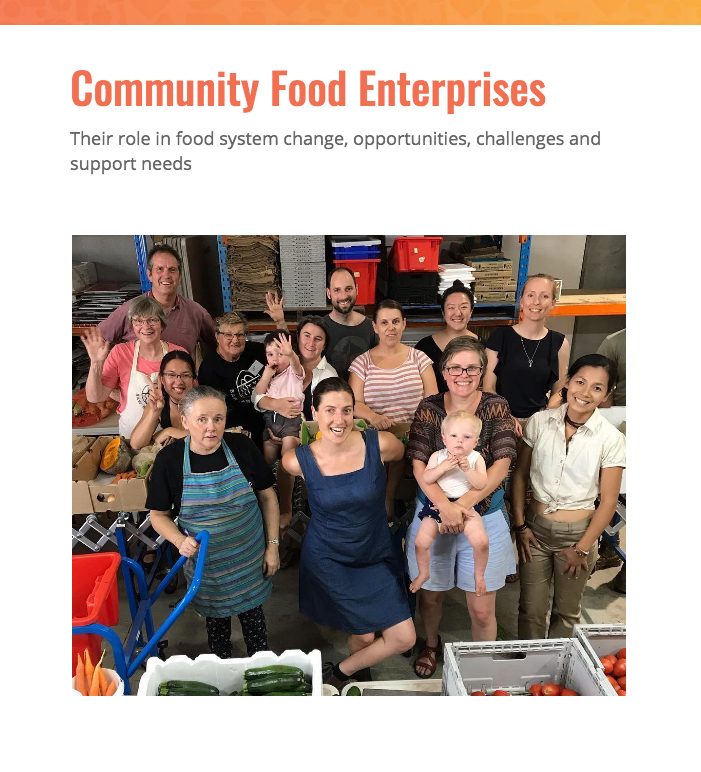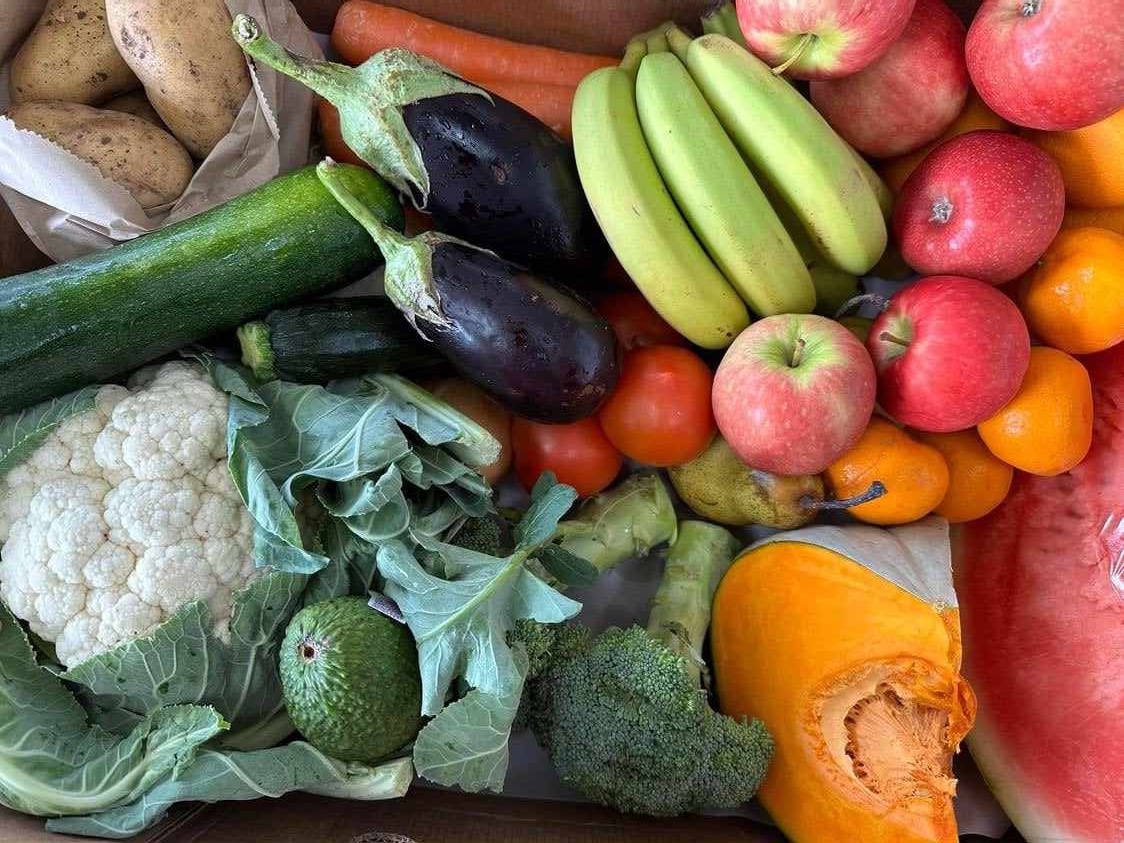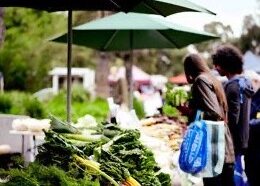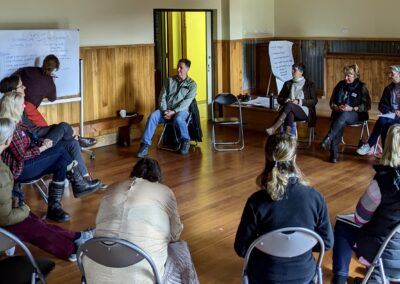Research Report
Community Food Enterprises report
Community Food Enterprises
Community Food Enterprises (CFEs) are locally-owned/-controlled food businesses or ventures founded around a desire to create positive outcomes for the communities they serve. This may be in the form of improved social or environmental outcomes, increased access to healthy food and support of local producers by providing fair farm gate prices. CFEs are a key ingredient in expanding markets for regenerative agriculture.
Our work with CFEs
Through its work with CFEs on food systems development projects and CFE incubator programs, Open Food Network has identified challenges facing CFEs in Australia, and five critical success factors. We have found that there are a number of ways to support enterprises, and to support a food system of thriving CFEs.
This report draws on our experiences of working with community food enterprises over the last decade. It shares our findings, but also our way of working in this space, where that information may be useful to others.
Key findings and recommendations
A CFE is unlikely to work without a core of values-aligned suppliers and customers who believe in what you are trying to do, believe that you are in it for the long haul and the right reasons, and want to help you succeed. CFEs need to focus on building both supply and demand iteratively, and match their scale appropriately through the supply chain – e.g. small regional retail food hubs need to target small-medium farmers. Often the costs of delivering multiple public good outcomes have not been properly appraised or accounted for. There is a very strong case for public funding for the community engagement and development work in a CFE project, particularly if dealing with vulnerable communities and particularly in the start up phase.
We have identified finite strategies currently used by CFEs to achieve viability while also internalising costs that the industrial food system routinely externalises and ignores. These include: avoiding capital costs by exploiting under-utilised assets and/or by using information technology; use of volunteer labour; efficient design of logistics and shared infrastructure / logistics; keen attention to administration / labour efficiencies; cross subsidisation between different customer groups; and payment for public good outcomes by government or philanthropic funders. Collaboration between projects can increase viability by providing informed customers for CFEs, reducing inefficiencies, and lowering costs by sharing them across numerous enterprises.
We identified a range of service/support needs for individual CFEs. These include one-on-one advice, and peer support – through both events and online discussion. Supporting start-up enterprises requires resourcing for 1:1 mentoring and peer collaboration over several months. Incubator programs need to support enterprises in food systems literacy, collaborative skills, and enterprise start-up skills.
All levels of government and other regional actors can support CFEs to achieve public good objectives for their local communities. They can do this using regional events and food system development programs and small grants programs, and by providing funding for a local food activator position – a person who sits outside of government and catalyses collaboration on food system activities in the region. CFEs can also be supported by having a single support point in council (rather than numerous departments), and by having access to shared infrastructure.
Latest Resources
Can we help?
Have an idea, a project or a question? Want help using the Open Food Network software? Get in touch and find out how we can help you with it.
Keep in touch
Join us
Create a listing, shop or group directory on the Open Food Network. Tell me more!
Read our Terms and conditions | Find us on GitHub
Open Food Network is a free and open source software platform. Our content is licensed with CC BY-SA 3.0 and our code with AGPL 3.
We take good care of your data. See our cookies policy
Open Food Network acknowledges the Aboriginal and Torres Strait Islander peoples on the unceded lands and waters across Australia. We pay our respects to Elders, past and present, honouring their rich cultures, traditions and custodianship that nourish communities and regenerate landscapes.

